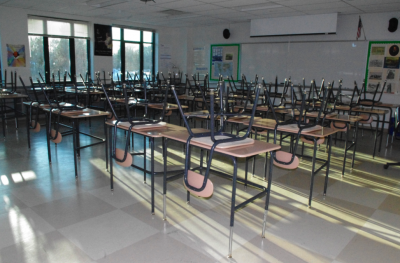Rachel Guetta ’13 and Alexandra O’Kane ’13
Opinions Editor and Staff Writer

When the school days cannot possibly seem any longer, students’ number-one visited website changes from Facebook to the weather page, each click filled with hope for a nearing snow day. Winter time has coined the phrase “let it snow, let it snow, let it snow.” Well, it has snowed. Maybe too much.
Not only do the driveways need mending, but the A.P. classes are also in need of a change. With schools in the Northeast already starting well after southern schools, the A.P. curriculum is fast-paced from day one. However, with such significant chunks of time lost due to the weather, the A.P. teachers and students are finding themselves in tough situations.
“Anything that takes up one to four days extra, puts more pressure on how to finish the syllabus,” A.P. Biology teacher Joel Kabak said.
According to Kabak, the syllabus is extensive to begin with, though all teachers find their own ways to get around it and cover the material within the allotted time before A.P. testing begins in May. To compensate for the loss of time, Kabak is planning on assigning more chapters for his students to read over the break, as well as setting times before or after school to go over material.
“We’ll just have to make do. The students who want to learn will find ways to get the work done,” Kabak said.
However, that may be easier said than done. Students are already feeling the pressure of the loss of time. According to Caroline Smith ’12, who is enrolled in A.P. U.S. History and A.P. Environmental Science, the class paces have been increased, as well as the workload.
“We’ve had to skip some things in class because there’s not enough time and there’s more outside learning,” Smith said.
Assistant Principal James Farnen seems to agree with Kabak in that the snow days do pose as an inconvenience because they take away from instructional time, but he believes Staples’ A.P. classes will find ways to maneuver around the difficulty.
“Yes, it’s going to be a challenge. Yes, there’s a curriculum that we have to cover, but we’re in a better position than other schools,” Farnen said.
Although Kabak recognizes the challenge that faces A.P. classes as Farnen has, he believes the classes will be successful no matter what, and attributes this to the students.
“Our students rise to the occasion every year because we have great students,” Kabak said.













































